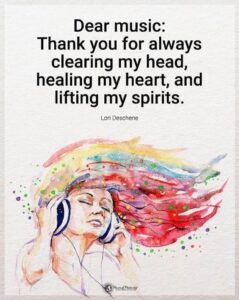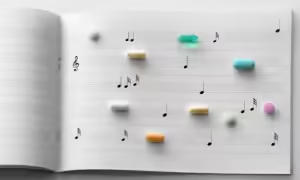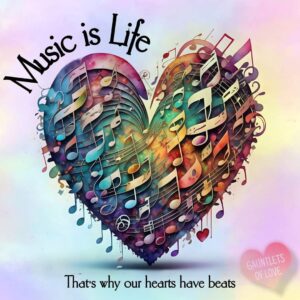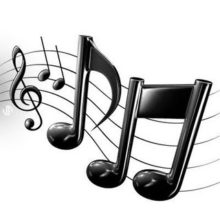As a music lover who could have been doing productive things my entire life rather than playing albums and going to concerts, I revel in my avocation. Whether it’s the simple and sweet lilt of “Happy Birthday” or the powerful, uplifting strains of the “Hallelujah Chorus,” music makes me smile.

And I don’t feel one scintilla of guilt for devoting hours to such bliss.
 Music therapy to foster recovery of speech and language post-stroke is well documented in the literature, so this is fact and not the fiction of a music lover who was a speech-language pathologist. Gabby Gifford famously recovered her skills in this manner after a gunman tried to kill her.
Music therapy to foster recovery of speech and language post-stroke is well documented in the literature, so this is fact and not the fiction of a music lover who was a speech-language pathologist. Gabby Gifford famously recovered her skills in this manner after a gunman tried to kill her.
Additionally, I have personally used my favorite records played at maximum volume as a means to surmount depression. Our music concerts, including deep dives into our four-hundred CD collection (forget the hundreds of records – they’re too scratched from party play) helped my husband and I make it through the lengthy stay-cation we experienced as a side effect of the COVID-19 pandemic. Music boosts mood, reduces anxiety, and countermands mental negativity. It might be used to soothe grief, although the memories evoked by certain songs might deepen grief.
Thank goodness I haven’t experienced the need to test that hypothesis yet.
Besides mood elevation, music is played during surgery for the surgeon and his team for cohesion and focus on team skills. Nursing teams promote music played before and after procedures as if to charm homeostasis into being, It has been used to salvage and soothe as ancillary to procedures and pills. Soothing to the spirit and the body, I favor music in my medical arsenal.
Active music-making truly engages your entire brain. This creates the most potential for distraction, pain reduction, cognition, fine and gross motor development, and expression. Some instruments, like the ukulele, are designed for easier access to free expression or learning. And, while a banjo isn’t an easy instrument to learn, every sound produced by its strings is spritely and merry! Everyone has a personal instrument, too – their voice – though some are more melodious than others.
Here’s the latest scientific discovery to deepen, hone, and solidify your knowledge of the power of music over pain: https://medicalxpress.com/news/2025-02-music-alleviate-pain-tempo.html?utm_source=join1440&utm_medium=email&utm_placement=newsletter&user_id=675b44b6013a24e0310a7b18#google_vignette
I’m pleased to present symptoms of melomania: an inordinate enthusiasm for music.



Recent Comments